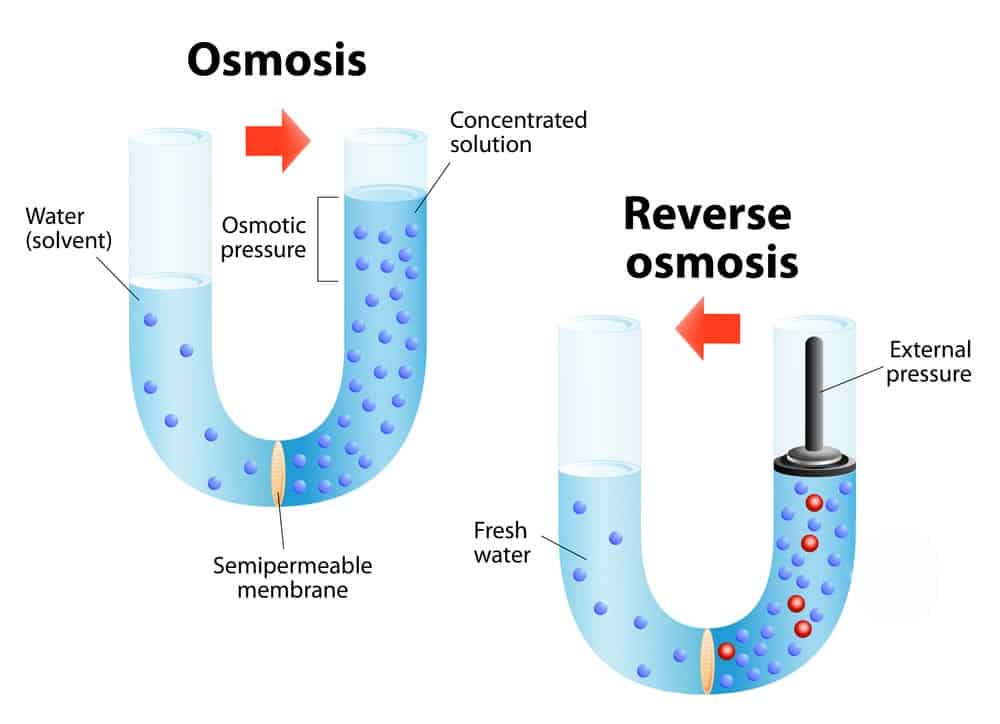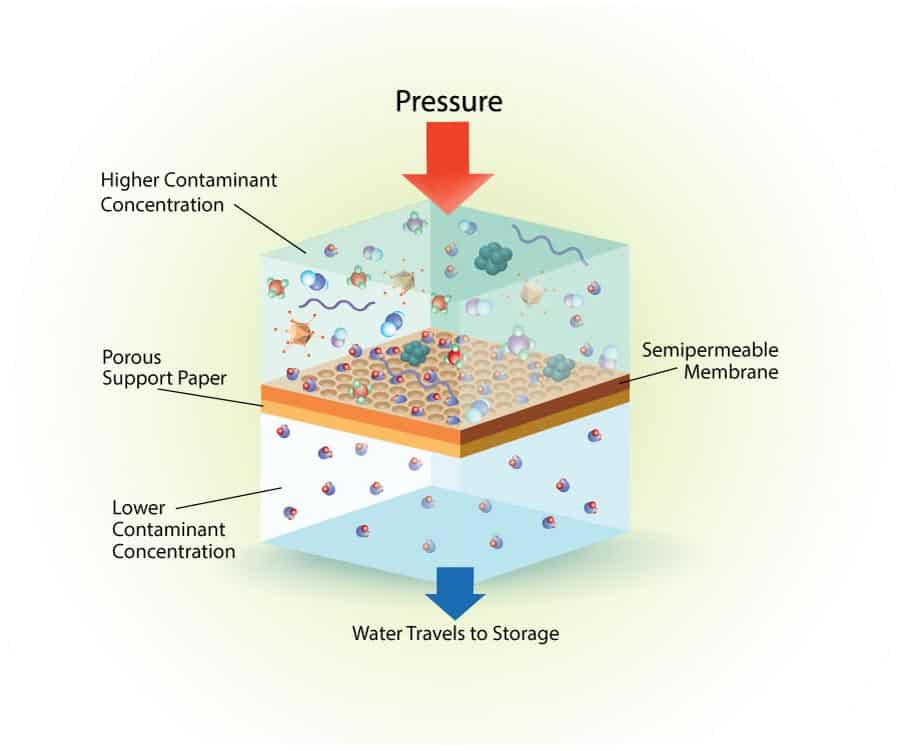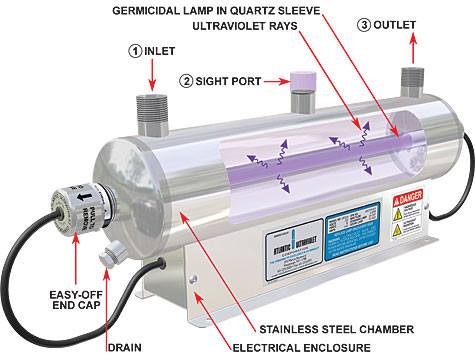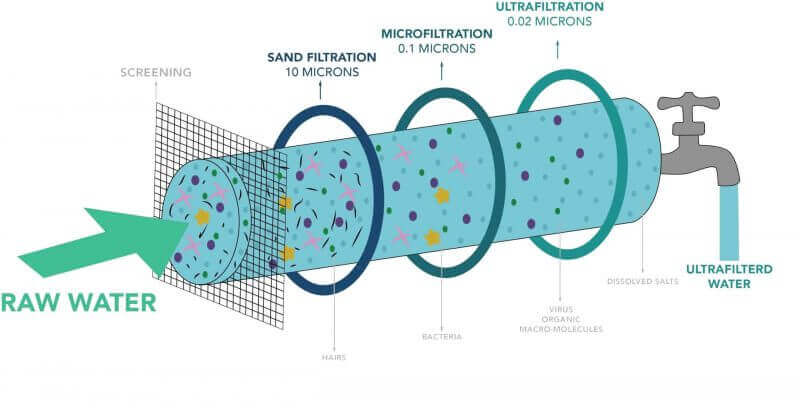The little bit we all know the importance of drinking purified water, and thus usage of water purifiers become common in every house. But is your water purifier really refining the water? Is it working in the way it should?
First, you need to know what it means by pure water. Pure water goes through purifying from toxins, micro bacteria, germs, and chemicals that we can’t detect in normal sight.
So where can we find such water? Well, we can’t find any direct source for it, but some renowned high-quality water purifiers make our work easy here.
Therefore, we must pick the best Water Purifier for our homes accordingly that comprises one of the three following prime technologies for purification, namely:
- Reverse Osmosis (RO)
- Ultraviolet Rays (UV)
- Ultra-Filtration (UF)
These purifiers have their advantages and disadvantages. However, in this article, we will have a detailed discussion on the major difference between RO vs UV vs UF water purifiers.
But first, have a look at the significance of the three water-purifying technologies.
What Is Reverse Osmosis (RO)?
Why can’t we use seawater for drinking purposes? It’s because seawater has salt in it. Now the question comes, can we remove the salt from the water?
The answer is, Yes. We can remove it. The process of removing that salt from water is called reverse osmosis. Like salt, we can also remove a lot of other stuff from the water. So let’s talk about that in detail.
Before we know about Reverse Osmosis, we need to learn about what is Osmosis.
Osmosis
Osmosis is a process through which a weaker concentrated saline solution converts itself into a more robust full saline solution when it dissolves with solutes like sugar or salt. Osmosis is a natural phenomenon, and that happens automatically.
Our kidney absorbs water from blood and trees absorb water from the soil. This, there are numerous examples of the osmosis process.

Reverse Osmosis
Reverse osmosis is the reverse process of osmosis. As simple as that. So in reverse osmosis, stronger concentrated water solutions migrate into weaker solution water. In other words, reverse osmosis is the process of removing all solutes from water.
The reverse osmosis process uses a semi-permeable membrane that allows water to pass through but stops the flow of harmful salt, bacteria, and other organics.
To push water through the membrane, we need more pressure, and more pressure means more power. And to achieve more power we need an electrical power source.
It also provides pre-filtration so that the unrefined water can be cleansed and all the lethal metals can be removed. Thus, maintaining the natural mineral contempt in the water. It runs on electricity.

What Is Ultraviolet Water Filtration(UV)?
Ultra Violet or UV purifier is also run by electricity and kills infectious bacteria and viruses present in the water.
The UV rays penetrate the germs and attack deep into their genetic core. Thereby disposal of the potential germ reproduction makes the water entirely fit for consumption. Presently, this filtration system has proven itself to be highly trustworthy and pocket-friendly.

Moreover, it is highly complementary to chemicals. Besides, it maintains the color and taste of the consumable water. Furthermore, the systems are quite compact and easy to use.
What Is Ultra Filtration (UF): UF Water Purifier?
Ultra Filtration or UF Water Purifier mainly uses ultrafiltration technology for the complete elimination of impurities in water.
The process is a type of membrane filtration that works on the principle of hydrostatic pressure. It is similar to RO technology but uses membranes of larger pores.
The main advantage of this method is that it does not require electricity to operate and can work effectively with the normal pressure of tap water. Also, this process is highly efficient and gets rid of about 99.99% of infectious microorganisms in the water.

The primary drawback of this method is that it is incapable of removing the TDS from water. If the water has a low TDS ( Totally Dissolved Solids) level, the UF system can adjust the level of the solids dissolved in the water.
Now let us discuss the primary differences between these various types of water purifiers.
Which One Is Better? RO vs UV
While talking about the difference between RO and UV water purifiers, the crucial difference is that RO can remove harmful dissolved salts, but a UV purifier can’t.
Using RO technology is now considered the most efficient and standardized method of purifying water for domestic usage.
However, certain impurities like bacteria, viruses, and other harmful microorganisms are still capable of passing through the RO filters.
These remaining microorganisms have the potential of triggering serious water-borne diseases like dysentery, diarrhea, typhoid, etc. It is here that the UV method comes into use.
This purification system starts after passing the water through the RO filters. The process eliminates all the harmful organisms that are present in the water as the residue.
Unlike RO, UV filters do not remove fluoride or nitrate salts, arsenic, and other chemical impurities from the water.
Although RO water purifiers waste a lot of water, UV purifiers don’t. This is a significant difference when the increasing decrease in water resources is kept in mind. Further, UV purifiers do not need the maintenance that RO filters do.
A Fair Insight Into UV vs UF
As already mentioned, the ultrafiltration process operates without electricity. Whereas UV filters do not. Moreover, UF membranes have a larger pore size and usually tend to last for a longer period.
Reportedly, UF filters cannot deal properly with heavy metals residing in water or water having a high TDS level. Also, unlike UF water purifiers, UV filters use the technology of ultraviolet filtration to eliminate harmful impurities from water.
UV technology can kill harmful water-borne diseases causing microorganisms, but the disadvantage is that the dead remains of these pathogens continue to exist in the purified water. Thus, the water cannot be considered fully pure and fit for consumption.
UF purifiers eliminate these harmful pathogens, and the bodies of the dead microorganisms often get stuck in the filter. So you have to clean regularly and manually.
You also have to take care cleaning of the UV water filter regularly. But, it is sufficient to clean the UF purifier once a week only.
Hence, you certainly have some understanding of the distinction between RO, UV, and UF water purifiers. Yet, let us revise the summed points discussed below:
- Primarily, RO and UV water purifiers require a large amount of electricity to function and implement their technologies. The UF water filtration system does not need any power to operate itself.
- RO water purifiers need extra electricity to increase and adjust the tap water pressure for further purification. However, both UV and UF water filters can function effectively under the regular pressure of tap water.
- RO water filters and UF water filters can eliminate all harmful pathogens- bacteria, viruses, etc. from the water. On the other hand, UF purifiers only kill pathogens but are incapable of removing their dead remains from the water completely, thereby leaving traces of impurities in the water.
- Removal of saltwater and other dissolved salts in the water is a straightforward process for RO water purifiers. But UF and UV water filters are incapable of eliminating the excessive dissolved salts or TDS, as they are known.
- The RO water purifier has an enhanced advantage as it is already equipped with an advanced pre-filtration system which allows the technology to work even with dirty water.
Difference Between RO vs UV vs UF
| RO | UV | UF |
|---|---|---|
| Requires Electricity | Require Electricity | Does not need any power source |
| Clean all germs and microorganisms | Can kill germs but can not filter out those | Cleans most of the germs and microorganisms |
| Removes dissolved salt | Can not remove dissolved salt | Can not remove dissolved salt |
| Has prefiltration | No prefiltration | No prefiltration |
| Can clean dirty water | Can not clean dirty water | Can not clean dirty water |
| Use permeable membrane | Do not use a permeable membrane | Use permeable membranes of larger pores |
| Can reduce the TDS level up to 90% | Does not reduce the TDS level | Does reduce the TDS level |
Conclusion: RO vs UV vs UF
So from the above discussion and comparison, it is obvious that RO technology is the best water filtration technology. But like any other process, RO also has its disadvantages. We can not simply rely on RO.
The best bet is to have all three technologies in the water purifier so that you have the purest water for your consumption.
Although having all three technologies in a single water purifier may cost a little more, nothing is more important than your health. Right?
We believe that this in-depth discussion on the prime difference between RO, UV, and UF water purifiers has helped you better understand making the right choice about owning a water purifier for your family.